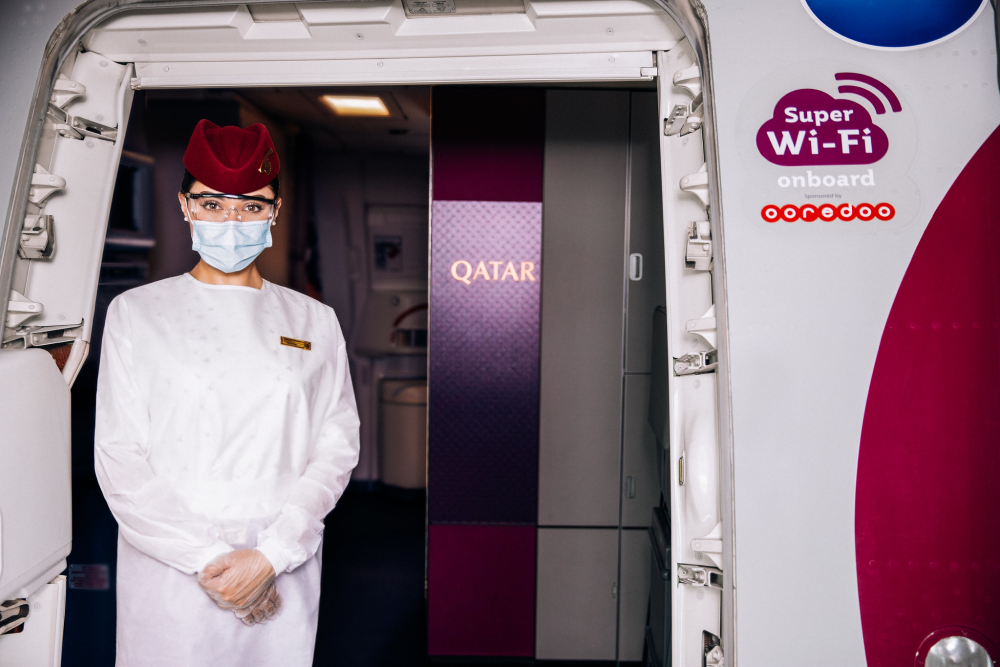Cool, calm and connected
This is a special feature from PAX Tech's October 2020 digital edition.

Gogo has plans to sell its commercial aviation business to Intelsat and focus on launching its Gogo 5G network and other offerings
With the initial shock of the pandemic fading, connectivity providers are focusing on the future and bringing innovation and solutions to the forefront. Through the summer, there were announcements of acquisitions, refreshed business plans, super celebrations and industry feedback.
It is clear that the pandemic is pushing inflight connectivity to evolve in ways that few would have considered in its early days.
Shifting focus
In late summer, Gogo announced its plans to sell its commercial aviation business to Intelsat for US$400 million. The transaction is expected to be completed by the end of the first quarter of 2021. When it closes, the company’s commercial aviation segment will belong to Intelsat, and Gogo will focus on the inflight connectivity services it provides to the business aviation market as a standalone, public company.
"Following a competitive strategic review process, we're confident this transaction unlocks the full value of the commercial aviation business for shareholders," said Oakleigh Thorne, Gogo President and Chief Executive Officer (CEO) in the August 31 press release. "With shared values and a clear commitment to working with the commercial aviation team to grow the business, we are confident Intelsat is the right partner.”
The transaction will enable Gogo to focus on its profitable business aviation sector by expanding current offerings, launching the Gogo 5G network that’s currently in development, investing further in finding innovative solutions for its customers.
"This transaction creates a stronger and more focused Gogo, with the singular strategic imperative of serving the business aviation market with the best inflight connectivity and entertainment products in the world," Thorne said. "The business aviation market continues its sharp recovery and strong demand growth trajectory, and our segment is exceptionally well-positioned to drive long-term value creation in that industry."
Super Wi-Fi for everyone
Last month, Qatar Airways launched its 100th aircraft with ‘Super Wi-Fi’; an A350-900. The accomplishment pushes Qatar Airways to the forefront in Asia, the Middle East and Africa for the number of aircraft with super-fast broadband service.
To mark the occasion, Qatar is offering 100 days of free onboard Super Wi-Fi connectivity to all passengers. From September 25, 2020 to January 2, 2021, passengers can stay connected inflight free of charge. The service is usually only free for one hour.

Qatar Airways launched it 100th aircraft with Super Wi-Fi last month
“Our mission to connect people around the world does not start and end with just travel,” said Akbar Al Baker, Qatar Airways Group Chief Executive, in the September 25 press release. “We understand the importance, especially in recent months, of enabling people to be connected at all times, whether on the ground or 35,000 feet in the air and we are delighted to work with Inmarsat and its GX Aviation.”
Qatar Airways is well-equipped with plans to increase and efficiently manage traffic bandwidth to provide a seamlessly-connected experience, a Qatar Airways spokesperson tells PAX Tech.
Insights from the industry
From April to June 2020, Inmarsat and the Airline Passenger Experience Association (APEX) teamed up on an industry poll about the aviation rebound. Entitled FlightPlan: Charting a Course into the Future, the results reveal a surprisingly promising future with a special nod to digitalization as a driving factor of future profitable growth. The results also provide a look at the industry perspective on what is affecting the passenger experience and how the crisis may impact aviation sustainability goals.
In the July press release about the poll, Dominic Walters, Vice President, Inmarsat Aviation, said, “Even in a period of unrivalled uncertainty and volatility, there is a true sense of optimism about the shape of the industry in this new world.”
With more than 500 global industry professionals responding, the poll found that the rebound is already underway but full recovery may take as much as three years. Just 13 percent believe the aviation industry was prepared for the crisis. Domestic travel is expected to bounce back quickest, with almost 85 percent predicting it will recover quicker than international travel, which is impacted by border restrictions and quarantines. The International Air Transport Association (IATA) suggests that rising flight volumes are being driven by recovery in domestic markets, such as China.
Seven out of 10 respondents expect point-to-point travel will bounce back quicker than hub and spoke routes, with low-cost carriers (LCCs) expected to recover more quickly (55 percent) than full-service carriers (45 percent).
Seven percent of those who took park in the survey believe that the bailouts from many governments have done enough to support the industry - so while the crisis is global, national response actions are varied.
When asked how the crisis will affect the passenger experience, nearly half (45 percent) of respondents believe it will have only a short-term reduction in investment. Almost a third (32 percent) believe there will be an overall increase.
Health and safety measures, such as those laid out by APEX and IATA, are major factors that could affect the future passenger experience. The FlightPlan report lists enhancing trackability and establishing clear aircraft decontamination procedures as examples of changes to passenger journeys, plus other developments that will come in the future. Eighty-eight percent of respondents expect slower turnarounds and an impact on flight schedules because of extensive cleaning, and 44 percent expect to see empty middle seats – even though IATA contradicted this in May.
With the European Union ban on single-use plastics to come into force in 2021 in all member states, the poll reveals there is little agreement about how the pandemic will affect the industry’s path to sustainability. Overall, 36 believe it will accelerate the goal while 47 think it will delay progress. “With a global recession potentially threatening investment in green technology, there was little consensus,” reads the report.

Qatar is marking the accomplishment of launching its 100th aircraft with Supe Wi-Fi by providing 100 days of the service onboard for free
Respondents are in agreement, though, that digital technologies and the future of the connected cabin will be major factors driving recovery, “with data analytics, biometrics, artificial intelligence and the Internet of Things set to have the greatest influence on future profitable growth.” Fifty-seven percent see contactless catering as a significant adjustment the future of onboard passenger experience.
“These survey results, together with the numerous discussions and debates during FlightPlan, indicate that the COVID-19 crisis may prove a decisive moment for digital transformation in an industry that’s historically been behind the curve, with the vast majority of aviation professionals expecting digital technologies to help drive a stronger return towards profitable growth,” said Philip Balaam, President of Inmarsat Aviation.
Inmarsat and APEX are moving ahead with what APEX CEO Joe Leader calls FlightPlan 2.0, which will be launched in November. The survey is expanding, with APEX and Inmarsat setting a goal of reaching out to 12,000 people in five countries.
Leader tells PAX Tech the survey “gives a taste of what passengers are feeling in the wake of COVID-19. Because we recognize that passenger’s sentiment is shifting, we need to address their concerns and also think positively about what they need in their inflight experience.”

